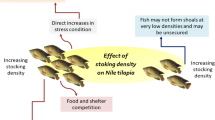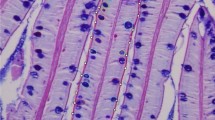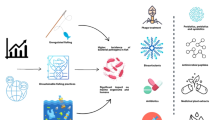Abstract
The intensive rearing of various fish species in aquaculture has revealed intimate relationships between fish and bacteria that eventually may affect establishment of a ``normal'' mucosal microflora or result in disease epizootics. Interactions between bacteria and mucosal surfaces play important roles both at the egg and larval stages of marine fish. Bacterial adhesion and colonization of the egg surface occur within hours after fertilization. The diverse flora which eventually develops on the egg appears to reflect the bacterial composition and load of the ambient water, but species-specific adhesion at the egg surface may also play a role in development of the egg epiflora. Proteolytic enzymes produced by members of the adherent epiflora may cause serious damage to the developing egg and may also affect further adhesion of the epiflora.
Ingestion of bacteria at the yolk sac stage results in establishment of a primary intestinal microflora which seems to persist beyond first feeding. Establishment of a gut microflora is likely to undergo several stages, resulting in an ``adult'' microflora weeks to months after first feeding. Ingested bacteria may serve as an exogenous supply of nutrients or essential factors at an early life stage. Early exposure to high bacterial densities is probably important for immune tolerance, and thus for the establishment of a protective intestinal microflora.
Successful rearing of early life stages of several marine fish species depends on knowledge of the complex interactions among the cultured organisms and the bacterial communities which develop at the mucosal surfaces and in the ambient water and rearing systems. The routine use of antibiotics during rearing of fish larvae is not advisable, since it may increase the risk of promoting antibiotic resistance and adversely affect the indigenous microflora of the larvae. The use of probiotics has proven advantageous in domestic animal production, and the search for effective probiotics may have a great potential in aquaculture of marine organisms. Bacteria with antagonistic effects against fish pathogens have been successfully administered to several fish species, resulting in decreased mortality or increased growth rate.
Similar content being viewed by others
Author information
Authors and Affiliations
Additional information
Received: 14 December 1998; Accepted: 7 April 1999
Rights and permissions
About this article
Cite this article
Hansen, G., Olafsen, J. Bacterial Interactions in Early Life Stages of Marine Cold Water Fish. Microb Ecol 38, 1–26 (1999). https://doi.org/10.1007/s002489900158
Issue Date:
DOI: https://doi.org/10.1007/s002489900158




